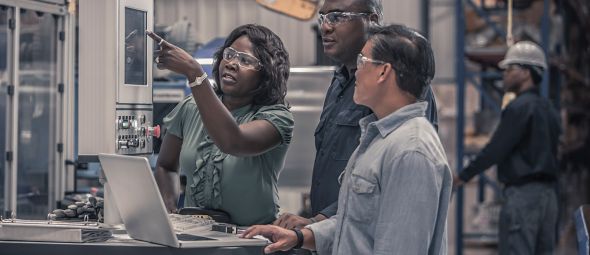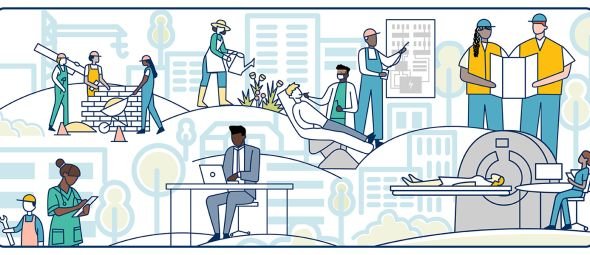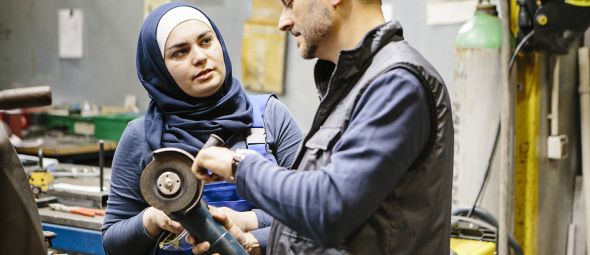Overview
People’s access to opportunity and advancement in the labor market is shaped by macroeconomic forces, technological change, policy choices, and labor market dynamics. Over the past 40 years, these influences have culminated in greater income inequality and less upward economic mobility for US workers. They have also contributed to a growing share of low-wage jobs in the US labor market. WorkRise generates evidence on and elevates our understanding of how macroeconomic, technological change, policy, and labor market dynamics influence economic security and mobility.
Working Knowledge

Economic context
February 04, 2021
Changemaker Q&A
Repairing Labor Market Institutions to Deliver Opportunity: A Q&A with David Autor
Autor, Ford professor of economics at MIT and WorkRise board member, reflects on raising the minimum wage, fixing unemployment insurance, and other reforms to ensure workers reap rewards from economic growth.

Employer practices
January 26, 2021
Article
New Protections Needed for Contractors and Temporary Workers as Companies Continue to Outsource Labor
A new report highlights the need for an expansion of rights and protections for independent contractors and temporary workers, a growing share of the US workforce.
Research
Economic context
Brief
Last updated on January 14, 2025
Workforce Strategies for New Industrial Policies: Governors’ Emerging Solutions
The report summarizes findings from interviews with 16 governors’ workforce development policy advisers in states that vary in terms of their political leadership, geographies, and populations.
Grantee Research

Economic context
Last updated on July 09, 2024
Expanding Worker Opportunities Through Evidence: WorkRise Impact Report 2023
By bridging knowledge gaps and forging multi-stakeholder partnerships among employers, worker advocates, policymakers, and practitioners, WorkRise is meaningfully improving economic mobility for lower-wage workers. Our 2023 Impact Report shares more about how we lead with rigorous yet actionable research and get it into the hands of the change makers best positioned to act on it.
Last updated on July 09, 2024
Economic context
Report
Last updated on May 14, 2024
Aligning Workforce and Economic Development to Benefit Workers
In this report, WorkRise examines what we know about the impacts of the workforce development and economic development fields and their implications for equitable economic outcomes for low-wage workers, especially Black individuals and other people of color who have faced systematic challenges in economic mobility.
WorkRise Research
Economic context
Report
November 20, 2023
Quantifying the Costs of Rising Unemployment
Rising unemployment brings significant costs to workers, their families, social outcomes, and the economy at-large. The contemporary tight labor market provides a good opportunity for researchers to better understand the benefits of low unemployment and thus the risks of high unemployment.
WorkRise Research

Economic context
Infographic
September 12, 2023
Leveraging Federal Funds to Create Quality Jobs
Do you want better jobs for your community? Through new federal dollars, state and local policymakers have a once-in-a-generation chance to build a new and thriving workforce.
WorkRise Research

